|
Welcome to the special Valentine's Day episode of On the Bench with Vidas #9. Today's special guest is Ausra Motuzaite and we are celebrating Valentine's Day at the piano at our home. Prepare to be entertained with immortal Liebeslieder Waltzes, Op. 52 by Johannes Brahms for Piano 4 hands! Visit Ausra's channel: youtube.com/c/ausramotuzaite PROGRAM: Liebeslieder Waltzes, Op.52 by Johannes Brahms (1869) 1. Rede, Mädchen, allzu liebes. Im Ländler-Tempo 2. Am Gesteine rauscht die Flut 3. O die Frauen 4. Wie des Abends schöne Röthe 5. Die grüne Hopfenranke 6. Ein kleiner, hübscher Vogel nahm. Grazioso 7. Wohl schön bewandt 8. Wenn so lind dein Augen mir 9. Am Donaustrande 10. O wie sanft die Quelle 11. Nein, est ist nicht auszukommen 12. Schlosser auf, und mache Schlösser 13. Vögelein durchrauscht die Luft 14. Sieh, wie ist die Welle klar 15. Nachtigall, sie singt so schön 16. Ein dunkeler Schacht ist Liebe. Lebhaft 17. Nicht wandle, mein Licht. Mit Ausdruck 18. Es bebet das Gesträuche. Lebhaft Score: www.sheetmusicplus.com/title/piano-works-for-four-hands-complete-sheet-music/3490030?aff_id=454957 Thank you for your support! If you like what I do, you can buy me some coffee: www.buymeacoffee.com/organduo PayPal: PayPal.Me/VPinkevicius My Hauptwerk setup: www.organduo.lt/tools.html Total Organist - the most comprehensive organ training program online: www.organduo.lt/total-organist Secrets of Organ Playing - When You Practice, Miracles Happen! organduo.lt Listen to my organ playing on Spotify: open.spotify.com/artist/0ckKPIvTWucoN3CZwGodCO?si=YWy7_0HqRvaZwBcovL-RKg
Comments
SOPP602: Your organ duet recital was wonderful… so inspiring. You and Ausra are a great team.6/30/2020
Total Organist and Secrets of Organ Playing Midsummer 50% Discount (until July 1).
Vidas: Hello and welcome to Secrets of Organ Playing Podcast! Ausra: This is a show dedicated to helping you become a better organist. V: We’re your hosts Vidas Pinkevicius... A: ...and Ausra Motuzaite-Pinkeviciene. V: We have over 25 years of experience of playing the organ A: ...and we’ve been teaching thousands of organists online from 89 countries since 2011. V: So now let’s jump in and get started with the podcast for today. A: We hope you’ll enjoy it! V: Let’s start episode 602 of Secrets of Organ Playing Podcast. This question was sent by Wendy, and she writes: “Hello Vidas, Your organ duet recital was wonderful… so inspiring. You and Ausra are a great team. Many thanks for sharing your huge talents. I am one of 3 organists who play for services at a Catholic church in Ipswich Queensland Australia...St Mary's. My training is as a pianist. I don't have an organ at home and my organ pedal skills are very limited. Enjoy your coffee!! Best wishes, Wendy” V: So, Ausra, Wendy sent us a donation for our recital! Remember? A: Yes! Thank you very much Wendy! We enjoyed our coffee that you gave us. V: Coffee is important, right? We have to keep up our strength before and after the recital. A: True! V: Do you enjoy decaf coffee or regular, Ausra? A: Well, I enjoy decaf more. V: Me, too. So, we tend to drink all kinds of decaf coffee, usually in the morning, but also in the middle of the day sometimes, after a good day’s work, too. A: Yes, but not so much now, when the CoViD-19 is all around us. V: You know, while thinking about this recital, our 12th recital, which was so inspiring to Wendy and I hope to other people as well, it’s so wonderful that people are appreciating our organ playing as a duet, right? A: Yes! We are very excited to play together. It’s so much fun. Although it’s probably harder to play a duet rather than solo work, but it’s more satisfying, at least for me. V: Would you prefer playing solo or as a duet? A: Well, I like to share responsibility during a recital, so I think it’s nice to play a duet. V: But I mean if we play together in one recital, would you rather play solo or as a duet? A: I could go either way. V: So, yeah! Usually people who watch our videos enjoy looking at our solo performances as well as four-hand and four-feet performances as well. This is really very exciting to watch a couple of organists make music together and do all kinds of Secrets of Organ Playing tricks. A: True! So do you enjoy playing duets? V: Of course, playing duets with you is one of the highlights of my day. A: Then we should play more often together! V: What are we playing? Can you share the secrets behind the scenes with our subscribers right now? A: You mean our solo work or our duets? V: Yes, as a duet. A: Well, we will have to play two recitals in August if the COVID-19 won’t prevent those from happening, you know… so we will play the huge program, which will include Mozart—two pieces by Mozart—one by Beethoven, then one piece written by Vidas, four pieces written on the theme of Lithuanian folk songs. And what else, Vidas, do you remember? V: I think we need to specify what kind of Mozart pieces we are playing. A: Well, “D Major Sonata” for four hands, and we are learning the “Eine Kleine Nachtmusik.” V: This is a very famous piece. Sometimes people play it as a solo work arrangement, sometimes as a duet, too. A: So basically, this is the one piece on our program, so… V: Originally it is written either for string quartet or string orchestra, so we can play it easily as a duet—two parts each. A: Yes, but we need to do it and start learning actually, not to talk about it, but to play more. V: You mean the third movement is very hard, right? A: Yes, it’s very fast. V: Yeah, that’s what I’m afraid of a little bit, too. On our Hauptwerk setup, the touch on these keyboards is very light. So there is no resistance like you would find in mechanical action organs. A: Well, we just need to turn on our tracker and practice on our tracker organ! V: And we do that sometimes. A: Yes. V: You know what? Maybe we could also share with our subscribers the fact that we might get a new organ frame, wooden frame! Remember, our friend yesterday, a carpenter, came over and he promised to build a wooden frame for our Hauptwerk setup. A: I think that will be great, because I was afraid that you are going to build one by yourself, and that might end up as a big disaster! V: Plus it would take me many weeks, and to do it with a regular saw, and our friend, the carpenter, has special equipment and gadgets and especially experience! A: True! V: And this way our Hauptwerk keyboards won’t be sliding backwards and forwards when you play Franck. A: Yes, true, because now the more difficult the piece, you play them more careful you need to be. V: Yeah, but it’s fun watching you play romantic music with these keyboards. A: Do I look like an elephant in a china shop? V: More like a hippopotamus on ice! A: Thanks for that! Good to know! V: Yes! So you guys will see it soon enough. Obviously, we’ll play an online recital as well, even though we are scheduled to play this piece August 1 in the festival in Anykščiai, Lithuania, and then later, August 23 in Rokiškis, Lithuania. But we obviously will play it online, first. A: Yes, we have to do that in order to practice. V: So, talking about Wendy’s concerns and challenges, I think she doesn’t have an organ at home, and this is a hindrance to her, and her pedal skills are very limited. What would you say to her, keeping in mind that she’s working as a Catholic church organists in Ipswich, Queensland, Australia? A: Well, one of the solutions would be to get a MIDI pedal board, and at least one keyboard. V: MIDI keyboard, like the ones we use for our Hauptwerk setup. A: Yes. V: And then you could connect those two things to your computer, usually MIDI keyboards connect via a USB cable, very simple, nothing else is required, but if you need to connect a MIDI pedal board, like we have at home, for example, you need a MIDI-to-USB converter. That is a special cable, another cable, that one side goes into the MIDI instrument, and another side goes into the USB of the computer. We use a USB hub, which actually is a powered hub. It connects to a power outlet, and it has many USB slots. We have two hubs, actually. One is with 10 USB slots, and another is with 7. And we need a lot of them. Right? Because we have many keyboards and other gadgets, too. A: True! Too many, I'm thinking. V: Yeah. And if we would plug only those to the computer, not into the power outlet, then the computer would probably be overheated, and it would consume too much power. But now, this hub is consuming the power outlet’s power, and it works just fine. So, we really recommend this. Right? A: Yes. V: If she doesn’t have an organ at home, yet, Wendy could maybe practice more in the church! A: Yes, that would be a possibility, of course we don’t know how far from the church she lives! V: Obviously not far enough, because she is playing there, at least, for services. A: Yes, but if you, let’s say, play for service once a week, maybe you don’t have to go to church every day. V: Probably not. Yes. As an emergency situation, I would also practice on the table. If nothing else is available, I would probably print out paper keyboards and pedal boards, and glue to them together. They are real size. You will find them in our website https://organduo.lt on the front page on the side bar on the right. Just scroll down, and you will find those paper keyboards and pedal boards. They’re very helpful for people who don’t have any instruments at home, at least temporarily. A: Yes, that might help actually. It’s better than not practicing at all. V: So, guys, please apply our tips in your practice. They really help. And keep sending us your questions; we love helping you grow. And stay tuned for our next online recital as a duet or a solo. We frequently post them on YouTube, so please feel free to subscribe to our YouTube channels. My channel, Secrets of Organ Playing, and Ausra’s channel as well. This was Vidas, A: And Ausra, V: And remember, when you practice, A: Miracles happen. V: This podcast is supported by Total Organist - the most comprehensive organ training program online. A: It has hundreds of courses, coaching and practice materials for every area of organ playing, thousands of instructional videos and PDF's. You will NOT find more value anywhere else online... V: Total Organist helps you to master any piece, perfect your technique, develop your sight-reading skills, and improvise or compose your own music and much much more… A: Sign up and begin your training today at organduo.lt and click on Total Organist. And of course, you will get the 1st month free too. You can cancel anytime. V: If you like our organ music, you can also support us on Patreon and get free CD’s. A: Find out more at patreon.com/secretsoforganplaying Total Organist and Secrets of Organ Playing Midsummer 50% Discount (until July 1). Source Today my long-time subscriber and student John Higgins from Australia wrote to me these words: I really hope I can come and visit you again one day! I have been listening to your Christmas concert at St John's from 2016, nearly 3 years ago! In fact I have probably listened to it like 20 or 30 times while I am doing the dishes or chores, and I think it is so brilliant, and one of the most enjoyable Christmas concerts I've ever heard! When I hear you play the St John's organ it resonates inside me, like meeting a long lost friend! I will always be be grateful for that life changing opportunity to play my recital. I think he refers to this Christmas recital: And I wrote to him:
It's funny you say you listened to my Christmas recital like 20 times. I can say the same about a certain improvisation by Olivier Latry Improvisations on the Liturgical Windows of the Cathedral of Saint Cecilia in Omaha, Nebraska, Partin Pasi dual temperament organ - Magnificat; Gloria; Stabat Mater; Victimae Paschali; Veni Sancte Spiritus; Pange Lingua; Dies Irae; Te Deum, available on Pipedreams: https://pipedreams.publicradio.org/listings/2008/0822/ In fact, @laputis and I witnessed this recital first hand when we were studying in Nebraska back in 2004. John was a guest on our Secrets of Organ Playing Podcast twice: https://soundcloud.com/vidas-pinkevicius/sop128-john-higgins-on-discovering-his-true-potential-after-365-days https://www.organduo.lt/podcast/sop-podcast-28-john-higgins-if-i-can-do-it-then-anyone-can-part-1 https://www.organduo.lt/podcast/sop-podcast-29-john-higgins-if-i-can-do-it-then-anyone-can-part-2 I hope John will come back to be a guest soon! Did you have such an experience yourself? When somebody said thanks to you and they were inspired by what you do but in fact, you can tell them exactly that you were inspired by somebody else?
Vidas: Hi guys, this is Vidas.
Ausra: And Ausra. V: Let’s start episode 260, of Secrets of Organ Playing Podcast. And today, Ausra and I are going to talk a little bit about our recent trip to London, to play at St. Pauls Cathedral. Are you feeling rested, yet, Ausra? A: Well, yes. I feel better now. V: Yes. It was a strenuous trip. So what do you think about it? What’s the first idea that comes to mind? A: About London, or about organ, or about St. Pauls Cathedral? V: Both. All. All of it. A: Well, I didn’t like London. V: You didn’t? A: Yes. I did not. V: So, that’s your main idea about it. A: Yes. Compared to Paris (laughs). It’s nothing to compare, actually. I just think London has many beauties but in terms of the whole feeling of the city, everything seems so eclectic, that those nice buildings seems lost for me. And all that modern eclectic styles. V: How did you like the weather? A: Well, it went to extremes. Because on the day that we arrived, temperature reached almost I think, 36 degrees plus, Celsius. (Ed note: 98.6 degrees Fahrenheit). That’s extremely hot. V: And that day on Friday, we spent about six hours on the bus—Golden Tours bus—driving through London on the roof of that bus. And luckily we had some water to drink but not enough, so we had to jump off the bus and buy some water. And there were some traffic jams all over the city and we were moving very, very slowly. It was good for taking pictures of course, but not as good for the tour I think. A: I know. So for me, it seems like London is a strange place. On the other hand, British tried to preserve their traditions so strongly, to keep the queen and the royal family, and Buckingham Palace. But on the other hand we built the glass skyscraper next to the historical building so it sort of an interesting way of living. Don’t you think so? V: I guess you have to get used to that landscape, of the city. Once you get used to it, it doesn’t bother probably people. A: Well, but let’s talk about St. Pauls Cathedral a little bit. It’s a marvelous building. It’s really amazing. V: It’s just too bad that people can’t locate it from the, I don’t know, maybe 200 meters distance to cover it all. Because tall buildings are quite near to the cathedral and there is not much space to look at it from the distance. Surely you could look at the cathedral from the other side of the river, from the Thames... A: Yes I think that’s the best way... V: But it’s a little bit to far, right? A: I know. V: And you want to have the full feeling of the building closer up. So, I think we found a shady place to sit on the bench, on the corner of the cathedral, and it wasn’t that hot in the shade, so that was nice. What did you think about the inside of the cathedral when we went to practice later in the evening? A: Well, to me it’s an amazing building. It’s enormous size, enormous height, and I don’t think I had been in a place so magnificent before. V: What about Notre Dame in Paris? A: Well you get a completely different feeling, because Notre Dame is a Gothic building. V: And darker. A: Yes, and completely different structure. It gets a completely different feeling. V: Hmm-hmm. A: But like in Paris, I felt like I’m at home, actually. Although I don’t know French, although it was my first time in Paris, if I felt like home. Everything seemed so familiar. And talking about Notre Dame, when we went there to the vespers, I felt like I was attending Vespers every night. Sort of everything was so familiar. V: We went to listen to Evensong, just before the concert on Sunday, to St. Paul’s Cathedral. And comparing to Notre Dame, I didn’t enjoy it as much. Did you? A: Me too! Me too, yes. V: Although the musical tradition was great there, amazing cathedral choir was visiting... A: From Seattle. V: From Seattle, for the weekend, and they performed evensongs on Friday, Saturday and Sunday, high quality music, high quality singing. But somehow the feeling was different from Paris, don’t you think? A: Oh yes! Very much different. I enjoyed the Gregorian Chant at the Notre Dame Cathedral much more. And I think at Notre Dame vespers were shorter than evensongs here, in London. And I found some very funny things, actually. Because, for example, when the choir sang Magnificat—and it was actually well developed composition by an original composer—but people had to stand up and listen to it. And it was a long composition. And I found it really strange. V: I don’t know why they do this. Maybe it’s part of the liturgy somehow. A: I know Magnificat is part of the liturgy, but it wasn’t just the Magnificat, it was an original composition, well developed and very long. Not like original Magnificat from the liturgy should be. V: Apart from these things, do you think that, for example, the organ, at St. Paul’s, was worth the trouble going there? A: Yes, it was worth the trouble going there, but let’s say that I prefer mechanical action, tracker action. And this one is not, what I like best. V: You have to know what kind of music sounds best. But I was surprised how nicely Bach sounded there. How nicely Mozart and Beethoven sounded there. Let’s talk a little bit about the program that we played, right? A: Well, if I would go over second time, which I think I will not do, but I would chose the program differently. I didn’t like too much our selection of music, except maybe of your Fantasy, based on the theme of Čiurlionis. V: For me the program was very nice. And look what people said to us, and how they reacted. How many people came to the recital, do you think? A: I would think, 300, maybe. V: Yeah. So, nice crowd. And those people who came up to us afterwards, were, I think, particularly happy. And we talked about that, about the program, about their experience, and interestingly, we met, I think two people from the readers of this blog, right, ‘Secrets of Organ Playing’, Brian and Mike, who came to this recital. It was really surprising and a nice moment. A: True, true, very nice. V: To meet our fans in person. A: And there were also some Lithuanians who came out to the recital. That was especially nice, at least for me. Almost made me cry. V: Because you know, there are probably tens of thousands of Lithuanians living in England, and they emigrate from Lithuania for a variety of reasons; for lack of decent job opportunities, for lack of respect, for the person don’t feel at home. And you have to understand that somehow those people get lonely without their country, right? Sure they have their community, but it sometimes, especially on festivities and solemn occasions, they might get lonely. And when they see somebody from their country visiting, let’s say, England, they get really emotional. A: True. True. And it really touched your soul. V: Although my music wasn’t particular Lithuanian—it was Fantasia on the themes by Čiurlionis—but Čiurlionis of course created his preludes, differently. I just took the themes and mixed them up, used different rhythmical ideas from them, changed the modes frequently. I don’t think it was particularly Lithuanian character, what I did with this Fantasia, but for them it was Lithuanian enough, you know. Because it was on the program, Čiurlionis, Lithuania, and they got really sensitive about the feelings and one person even I guess, had some tears on his face. A: Yes. V: Ausra, you don’t think that this program worked well for this organ? A: Well, I think it worked okay. That’s my opinion. V: And I was quite happy, actually, how much of Beethoven and Bach worked. We played at the beginning, a four-hand Sonata by Mozart in D Major. It has three movements; fast, slow and fast. And later we played Beethoven’s Adagio from the ‘Suite For Mechanical Clock’, which was followed by the third movement of the first Brandenburg Concerto by Bach. So obviously, mechanical action organ, was ideal for those sort of pieces. But I really can repeat myself saying that I was surprised. Maybe the registration was done well, or the texture was elegant and not too polyphonically complex, that it worked in this amazing building with at least eight seconds of reverberation. A: Well actually before going where I was afraid of acoustics, of what it might bother me too much. But actually I didn’t feel it so much. V: You didn’t feel? A: Yes. And in general the feeling I got about seeing that instrument is very strange. That proves it to me was the feeling that I got at Eastern Michigan University at Pease Auditorium, where we have that wonderful Aeolian/Skinner instrument. I don’t why but the feeling was a little bit similar. V: Maybe this is because of the action, but... A: Yes because of the action. V: But acoustics and colors are different. A: Yes, true, but somehow it felt a little bit similar, that feeling. V: I’ll you what’s similar: I felt similarly in Detroit, St. Pauls Cathedral, also Anglican. A: Well I felt better in Detroit, actually. V: Mmm-hmm. So, you see guys, we are so different, right? We both like mechanical action organs, but Ausra is more purist in this way, and for me, it was, it sounded surprisingly well, this kind of program. And if I had to repeat this program, I could do it without changing anything too much. Because people deserve to hear baroque music or Mozart or Beethoven. A: Yes, but luckily we haven’t played any fugues. I think fugues would be disaster on that instrument. V: That’s true. That’s part of the reason we didn’t choose polyphonically complex music, because we were experienced enough to know how the pieces will interact with the amazing acoustical environment there. The texture will be lost there, I think. So, yeah, later type of music, Romantic and Modern would sound best. Or orchestral transcriptions from earlier times would sound also well. So that’s what we did. Brandenburg Concerto is an orchestral piece, and lighter texture, not so polyphonic. And classical texture from Mozart and Beethoven fits well the building too. A: I think Elgar would sound best on this instrument, "Pomp And Circumstance". V: Obviously, yes, everything that has not more than three layers of musical melodies. For example, when we played Fantasia that I created, it has a melody, it has a counter-melody that (the) second player plays, and it has accompaniment. So three layers and they both, they all interact with each other nicely and not to difficult to understand. If it was a fugue in four voices, and those voices would move equally, then, I think for this building, it might be too complex, right? Or you would need to create some kind of performing miracle to do it justice, for it. A: So, what was the most interesting experience for you from this all trip? V: Now that you mention, I think that evening when we were finishing the rehearsal on Friday, or Saturday, it was Saturday, yeah. A: Saturday night. V: Saturday night, we were getting ready to go to the hotel, and we couldn’t find the exit. A: Yes. We had to leave through the basement, where the guards are located. And we could not find the exit so we were wandering all those sarcophagus (laughs) and rest in peace of all those things. And seeing those people that are buried in this magnificent cathedral. And I thought maybe we will have to just spend the night next to them. V: Right. But somehow we, after a few round trips through the cathedral, we were lucky to find the gap and opening and go out the right way. So to end this conversation, Ausra, I think it’s time for us to say thanks to the organ scholar, who showed us around on Sunday—Nicholas Freestone. A: Yes. V: And he will be leaving the cathedral very soon but he helped us a lot. And also James Orford, organ scholar there, who met us on Saturday night to introduce us to the organ. He came from Liverpool from his concert there. And we were grateful that he introduced us to this instrument, and it facilitated our practice a lot. A: Yes. V. Too bad that St Paul's Cathedral doesn't allow to make recordings so we can't show you how it sounded. They don't even allow to take photos (we took a few of them anyway so that we would have something to remember because we were not tourists). We actually bought a set of postcards and a couple of CD's with music from St Paul's there. A. But they charge people to enter the Cathedral (entrance to the recitals is free, though). Seems not a good way to do marketing in this digital age. Sort of backward-looking. When everybody had to buy postcards or CD's a generation or two before. Because if you can't take pictures or make videos, you can't show them to your friends. If you can't show them to your friends, the word about this cathedral and its influence will not spread as far as it could. V: Thank you guys. This was Vidas. A: And Ausra. V: Please send us more of your questions. If you have any questions that we didn’t talk about our concert trip, that would be nice to get. And we hope you will practice today, right? Because, when you practice... A: Miracles happen!
This blog/podcast is supported by Total Organist - the most comprehensive organ training program online. It has hundreds of courses, coaching and practice materials for every area of organ playing, thousands of instructional videos and PDF's. You will NOT find more value anywhere else online...
Total Organist helps you to master any piece, perfect your technique, develop your sight-reading skills, and improvise or compose your own music and much much more... Sign up and begin your training today. And of course, you will get the 1st month free too. You can cancel anytime. Check it out here Here's what one of our students is saying: Dear Vidas, Thank you for your email. Yes, I have started BWV 546 and is slowly coming along, thank you. I very much like the historical fingering and pedaling on your scores. Like for example, toes only and 343434 and 121212 fingering in Bach. It definitely helps with the articulation. Oscar Would you like to receive the same or even better results that Oscar is getting? If so, join 80+ other Total Organist students here. AVA209: I listened to most of my recital last night, and it was incredible reliving the experience5/2/2018 Vidas: Hi guys, this is Vidas.
Ausra: And Ausra. V: Let’s start Episode 209, of #AskVidasAndAusra Podcast. This question was sent by John, from Australia. When he got back from his European trip, and he visited us and played the recital at our church, Vilnius University, St. John’s Church. And upon returning he sends this question, feedback basically. And I’d like to read an excerpt from his letter because his feedback about his own playing is so fascinating. Let me, let me find the suitable place to start: Dear Vidas and Ausra, I am still buzzing with excitement from my trip, my pilgrimage to see the master! I think it is only just starting to sink in now, the enormity of meeting you and playing an international recital. It felt so easy being with you, because even though it was the first time we’ve met face to face, we’ve been friends for more than seven years. I listened to most of my recital last night, and it was incredible reliving the experience. I remember a football coach once said, “things are never as good as they seem, and things are never as bad as they seem”. I think honestly that there is lots of opportunity for improvement, you have been very kind with the words you have said, but I want to get better. I can understand how you thought when was I going to crash! I was fortunate to somehow “save” it a few times, maybe muscle memory saved me. I felt like it was “so near yet so far”, some pieces were sounding so great and then, woops, messed up there! Ha ha! But the context is I had only been in your amazing country for 18 hours before the recital with about 4 hours practice! So on the plane coming home I wrote a list: What went well: My research and preparation
What didn’t go well:
Overall, my biggest lesson was, more SLOW practice required. What do you think? As your student, what would you like to see me working on in the next 2 years? V: So, Ausra, what do you think about his feedback? A: I think it’s very, you know, deep, and I don’t think I would do better for myself, you know, if I would have to analyze my own recital. He has such a great analytical thinking about everything. And I think he, you know, he thought of, each single detail of his performance. This I think, is very amazing. V: Yeah. This is really exciting to, to, to read this through and I hope people who are listening to this also understand how much thinking went into after the recital experience. A: Yes, that’s right. V: And before too, you see what his preparation was. For example, he asked me to, to send a specification of the, of the organ which is normal, but then I had to take lots of pictures with the layout of the stop list, stop knobs, actually. And he would practice using those stop knobs in advance, and choosing the stops correctly, which actually almost worked. A: Yes. He only needed to do a few corrections. And the entire program which I found also amazing. V: Probably, the most tricky thing for him was the pedal board which was flat parallel pedal board, German style, and he was more used to the, I don’t know, maybe radiating pedalboard. A: Yes. V: But it takes a while to get this experience. A: I know. If he would have a few days, you know, to practice on that organ, I think he would be just okay. V: Uh, huh. A: With it. V: Because normally people arrive a couple of days before,,, A: Sure. A: And get two more practices on each, on this organ. So, he asks, what he should be practicing now, in the next two years. Maybe next two years is a very long time to think ahead, but let’s say, in the next few months, for his next maybe performance in public. Let me, let me, while you think Ausra, let me, let me say a few suggestions: I think it would be nice for him to continue to improvise. Every practice session he could start with, I don’t know, maybe, a few minutes of improvisation as a warm-up. And then, he should choose at least three pieces from different periods of organ compositions. Let’s say, maybe four pieces, yes? One piece would be a Baroque piece, early Baroque, maybe 17th Century. Then one piece would be Bach, one piece would be a Romantic work, and one piece could be a modern composition—Twenty or Twenty First Century. What do you think? A: Yes. I think that’s a perfect suggestion. Because I think he needs to build a repertoire to standard, to expand it. And I would definitely suggest him to play some of the modern German music. V: Mmm, hmm. A: Buxtehude, perhaps. V: Chorale based. A: Yes. Or some free works as well. He, Buxtehude wrote so many nice praeludiums. V: Exactly. Um, and if he does this he little by little can expand his repertoire while not putting many hours actually, per day, because he doesn’t have that possibility to practice for hours, because he has a family to take care of and a very demanding job. And other things to do too, besides organ. But learning three or four pieces a little bit at a time, is doable. A: I also thought, you know, about playing some French Noels because I know that he’s preparing for lessons in carols. V: You’re right. A: I think this would be a nice occasion to play French Noels so he could easily pick up something from, let’s say,,, V: Probably, D’Aquin... A: Or Balbastre... V: Or Dandrieu... A: Yes. V: Those few. A: And it’s nice about those, you know Noel-based variations that you don’t have to play them, the whole set of variations. You can just stop after any of them, so… V: Right. You, you can perform partially. A: Yes. V: That work. A: Yes. V: Exactly. And for people who are in John’s situation, this is a very good advice: Start expanding your repertoire a little, and also, remember to repeat your old pieces from time to time. A: Yes. V: So that your repertoire would grow really. So that you’re not only working on the new stuff but basically expanding, really expanding your bag of tricks, so to say. A: That’s right. V: Excellent. So we really hope that John can, can find, let’s say Bach’s piece. He started playing a few preludes and fugues from the Eight Little Preludes and Fugues collection. Now he can take one step further, right? Maybe like the fugue BWV 578 in G minor, or a shorter but not very long intermediate level of preludes and fugues (BWV 533 or BWV 549). What do you think? A: Yes. It would be I think, a great idea. V: Or a chorale from, from Orgelbuchlein, other than Ich ruf zu dir. A: True, and since, you know, as we gave him, you know our CD’s. V: Yeah. A: And he wrote that he liked, you know Schmucke Dich by J.S. Bach. I think it might be still be too hard for him to play at the moment, but if he really likes that kind of style, he could even try the Nun komm, der Heiden Heiland, BWV 659. V: From the same collection… A: Yes. V: of Eighteen Great Chorales. A: Because it’s, it’s less demanding than Schmucke dich. Nevertheless it’s very beautiful. And it has this nice ornamental soprano voice. V: And it will work for lessons in carols, I think. A: Yes Because, it’s you know, based on advent, on advent chorale. So… V: So things like that would be very suitable for John to take one step further, expand his repertoire, and make the pieces a little more complex now. A: Sure. V: But not too complex. Just,,, A: Yes. V: A few steps further. Thank you guys. This was Vidas. A: And Ausra. V: Please send us more of your questions. We love helping you grow. And remember, when you practice… A: Miracles happen!
Welcome to Secrets of Organ Playing Podcast #125!
Listen to the conversation
James’ involvement in church music ministry spans over several parishes of the Albury, NSW, area. James enjoys the demanding but rewarding challenges in contributing to the various liturgies of the Christian church and his ongoing development as a recitalist and liturgical organist. James hopes that the organ will be a treasured instrument for many more generations to come. Apart from his musical endeavors, James completed an IT degree from the University of Wollongong and currently works as an Enterprise Systems Engineer at Fairfax Media. He is also strongly interested and skilled in many web related technologies. In fact, his website (jamesfloresorganist.com) was created by James along with the assistance of his talented wife Leysa Flores (Graphic Designer). In this conversation, James shares his insights about his recent 12 recitals in 12 months challenge. And don't forget to help spread the word about the SOP Podcast by sharing it with your organist friends. If you like it, feel free to subscribe to our channel on Musicoin. By the way, you can upload your own recordings to YOUR channel to maximize revenue. If you have some audio recordings of your organ performances, you can do the same. Feel free to use my invitation link to join Musicoin: https://musicoin.org/accept/MUSICa45e5f26ede2be5dd4411747 Thanks for caring. Listen to the conversation Relevant link: jamesfloresorganist.com By Vidas Pinkevicius (get free updates of new posts here)
If you're reading this on a phone, you may want to click "Show images". Your hands are shaking and heart is pounding but you continue to play. Your mind goes blank but you keep the steady pulse. You make a mistake but you don't apologize. You wish the piece would end right now but you remember the next episode and seamlessly begin with what you know. Before you know it, the end approaches, you stumble but you finish on the right key. You smile. You bow. You succeed. That's the attitude. Vulnerable and fearless at the same time. That's what some people tell when faced with imminent stress of playing in public. No smile, only anxiety, and a sinking feeling in the pit of the stomach.
It's no wonder why they can't relax, can't feel the joy of creating music for others (at least before the event). Not ready to be generous. Because generosity requires an act from a different part of the brain. The one that is activated by the giving and sharing. When threatened with the imagined danger of public humiliation ("they will laugh at me"), this brain is easily overridden by our ancient defense mechanism activated by the oldest part of our brain which was quite vital when you didn't know, if you would survive the night or an encounter with a fierce animal. But to have a recital is to be generous in the first place. No need for stress. Wake up to the miracles instead. |
DON'T MISS A THING! FREE UPDATES BY EMAIL.Thank you!You have successfully joined our subscriber list.  Photo by Edgaras Kurauskas Photo by Edgaras Kurauskas
Authors
Drs. Vidas Pinkevicius and Ausra Motuzaite-Pinkeviciene Organists of Vilnius University , creators of Secrets of Organ Playing. Our Hauptwerk Setup:
Categories
All
Archives
July 2024
|
This site participates in the Amazon, Thomann and other affiliate programs, the proceeds of which keep it free for anyone to read.
Copyright © 2011-2024 by Vidas Pinkevicius and Ausra Motuzaite-Pinkeviciene.
Terms of Service and Privacy Policy
Copyright © 2011-2024 by Vidas Pinkevicius and Ausra Motuzaite-Pinkeviciene.
Terms of Service and Privacy Policy

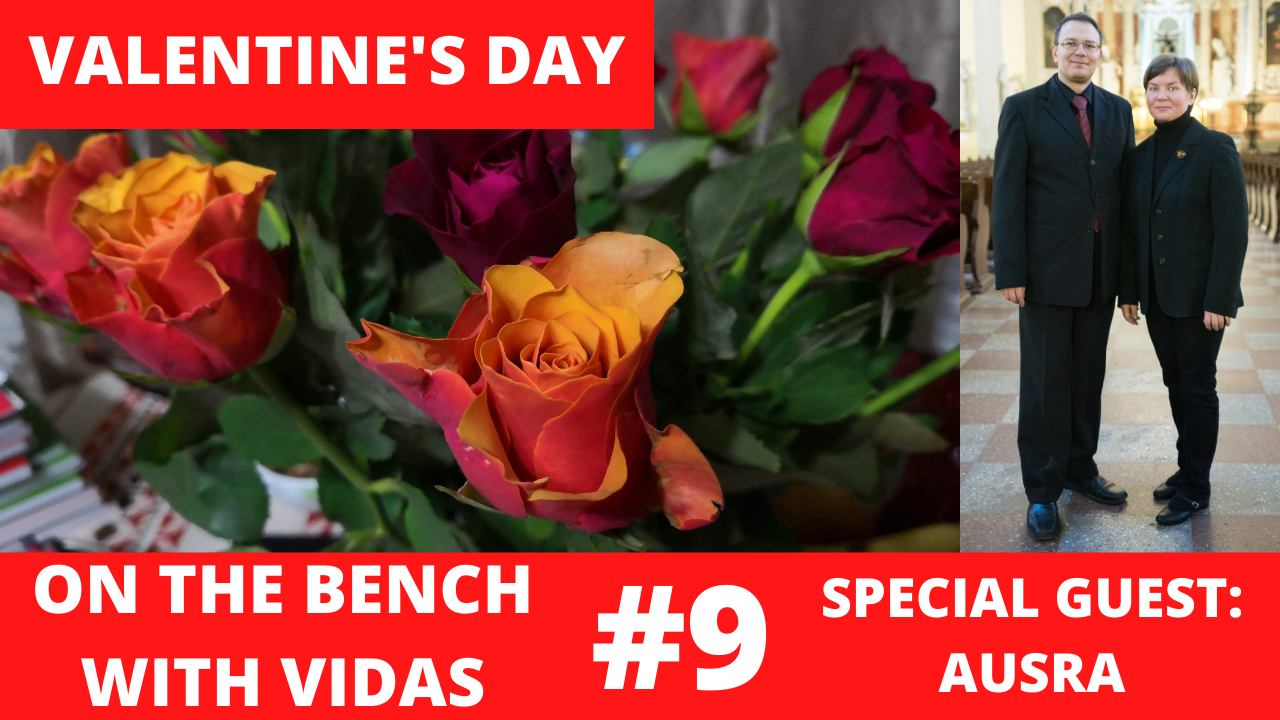
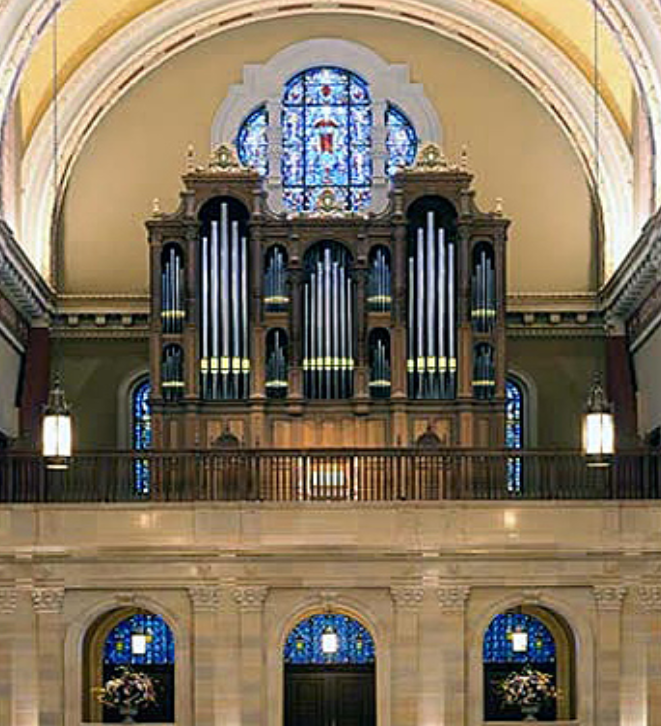
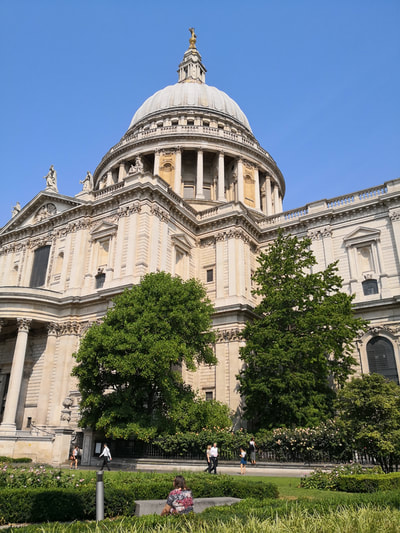
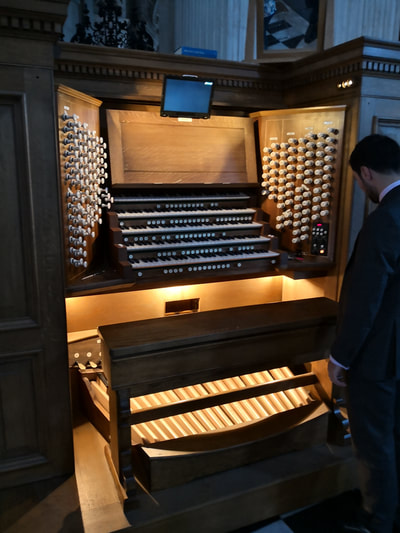
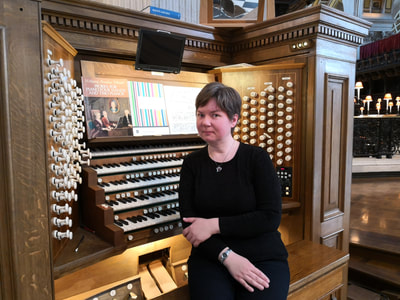
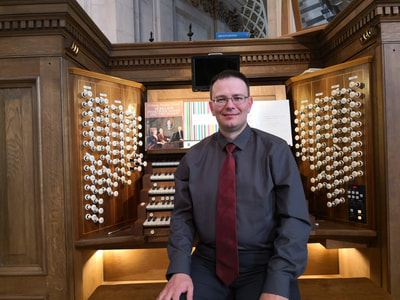
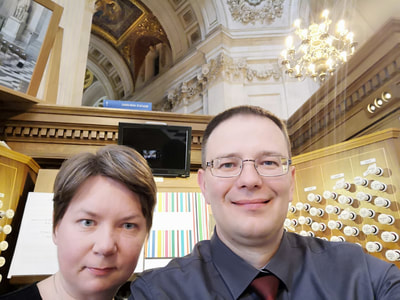
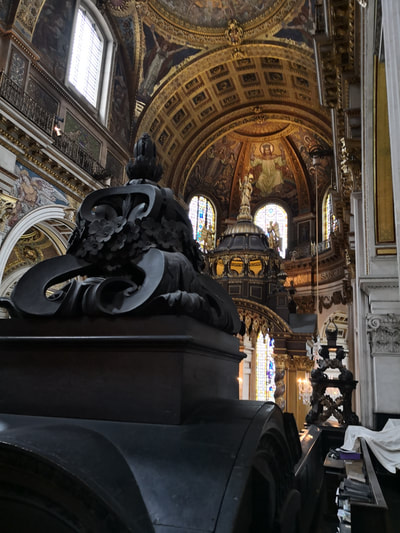
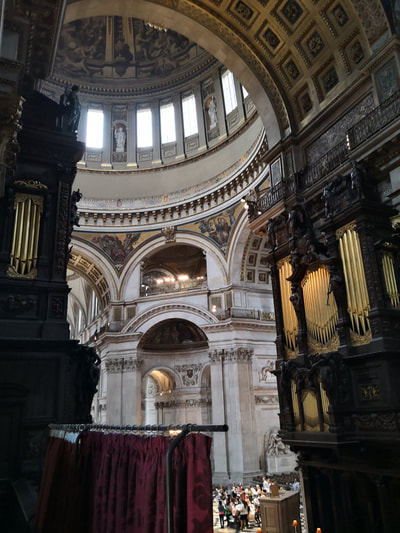
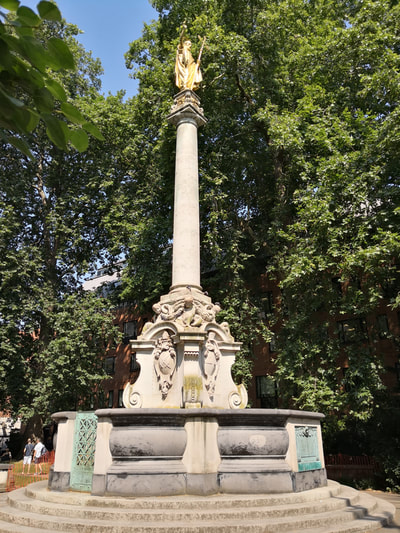
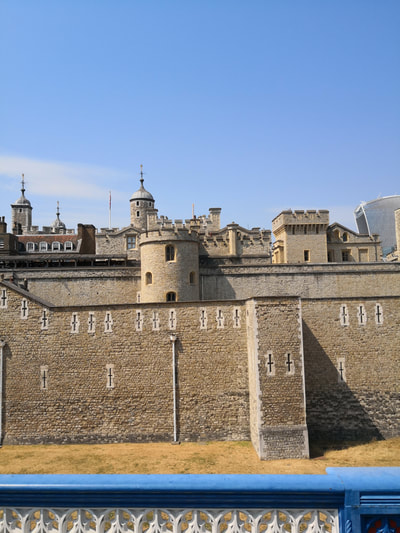
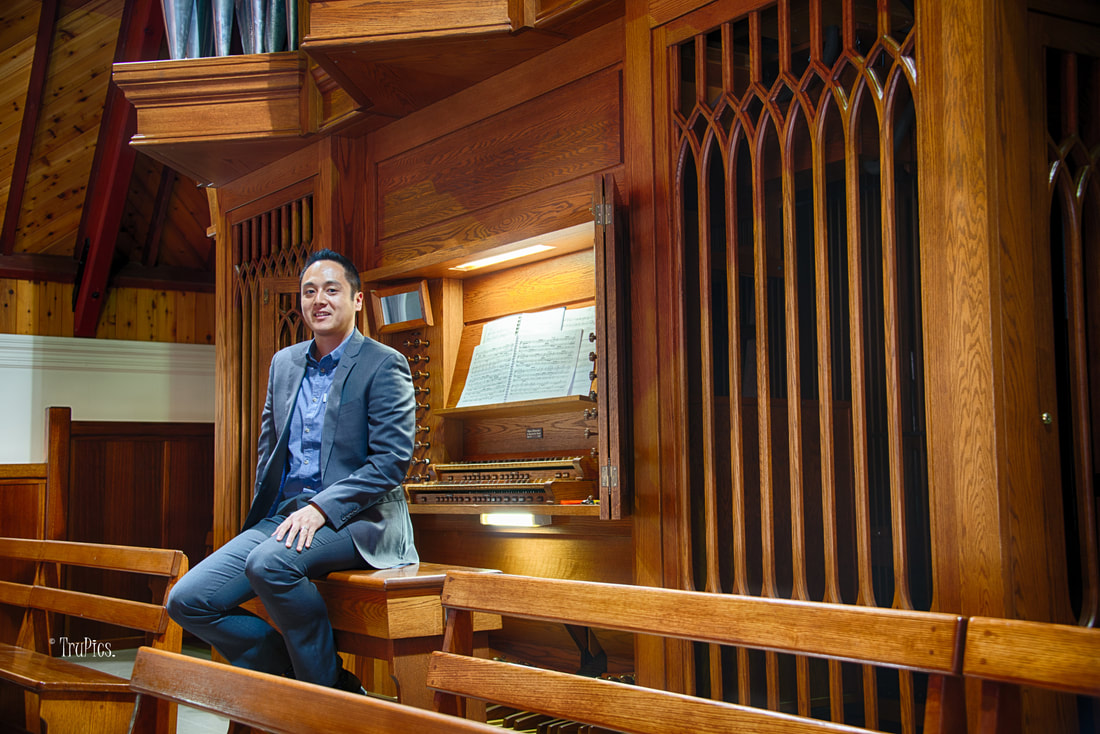

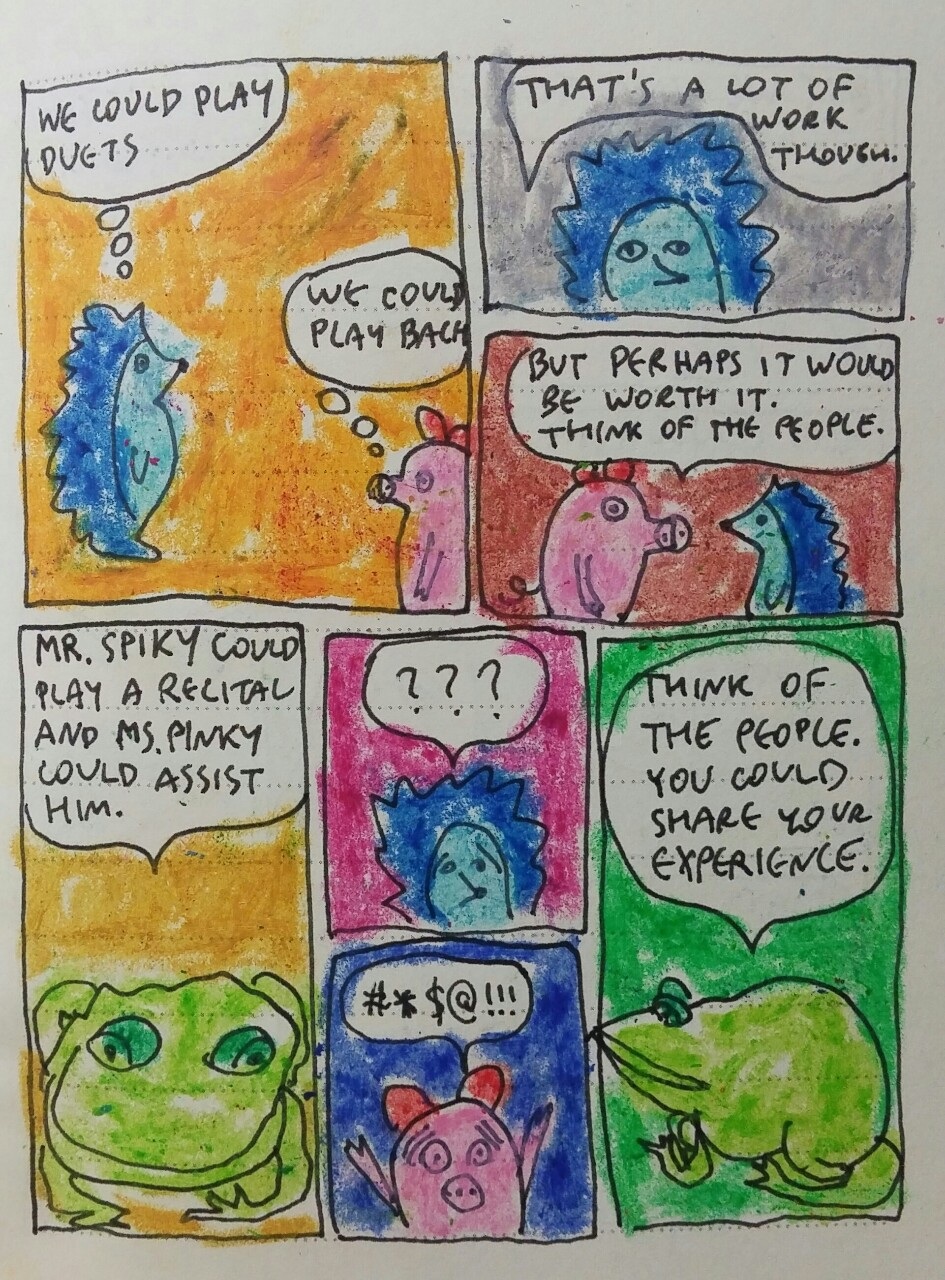
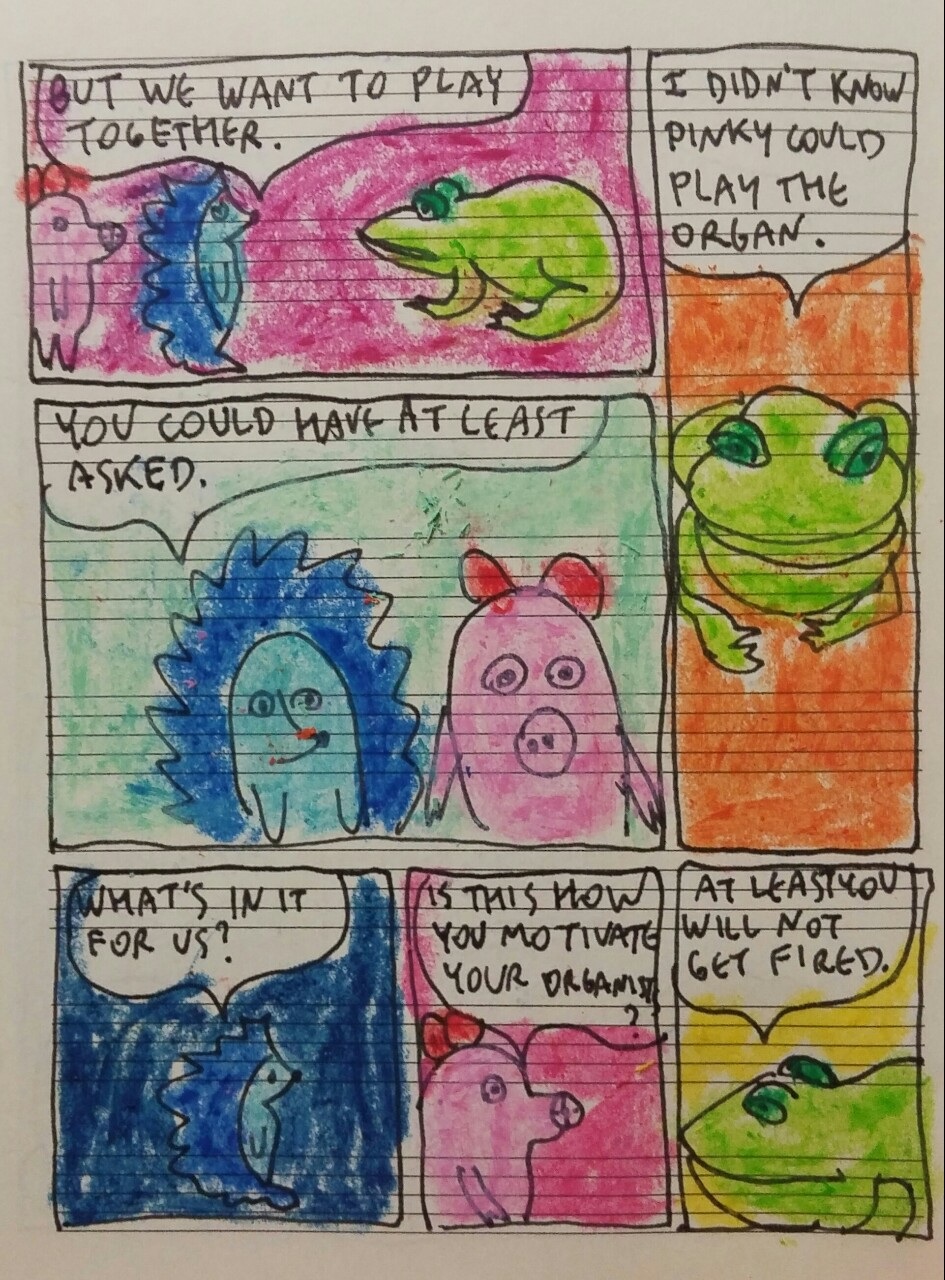
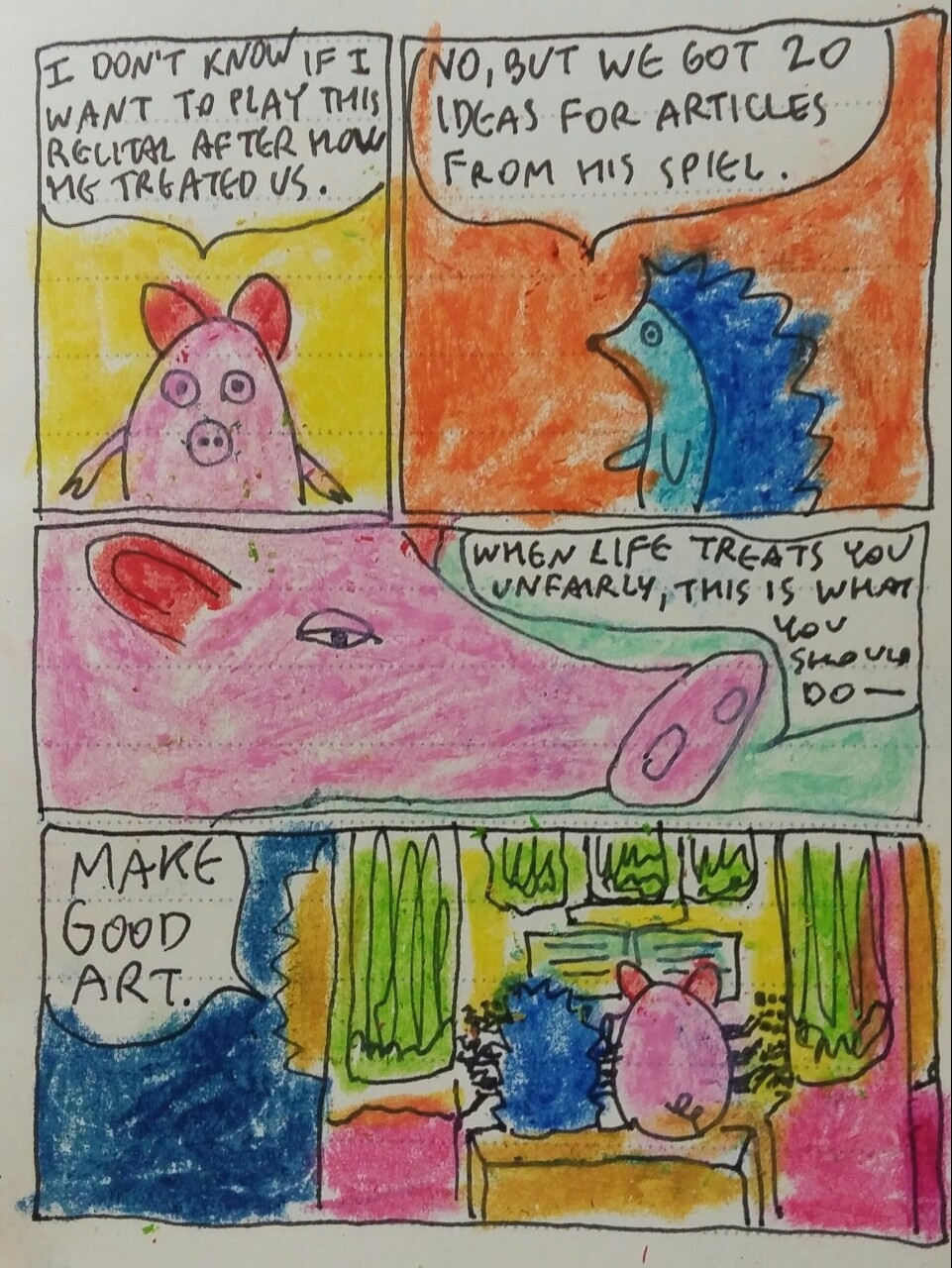
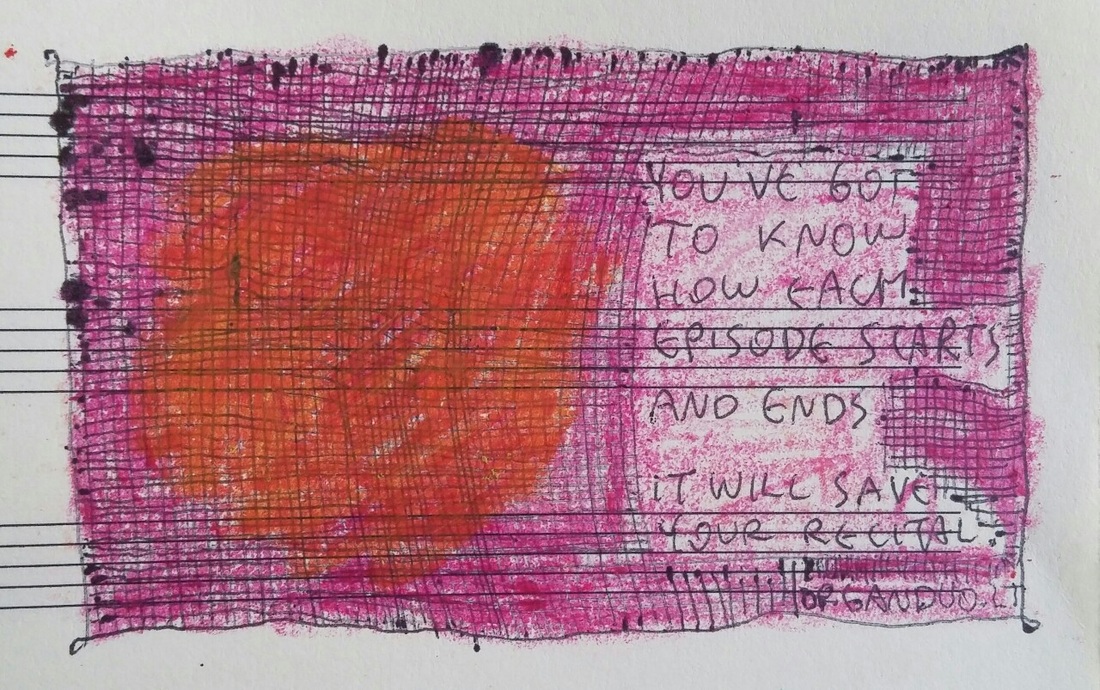



 RSS Feed
RSS Feed